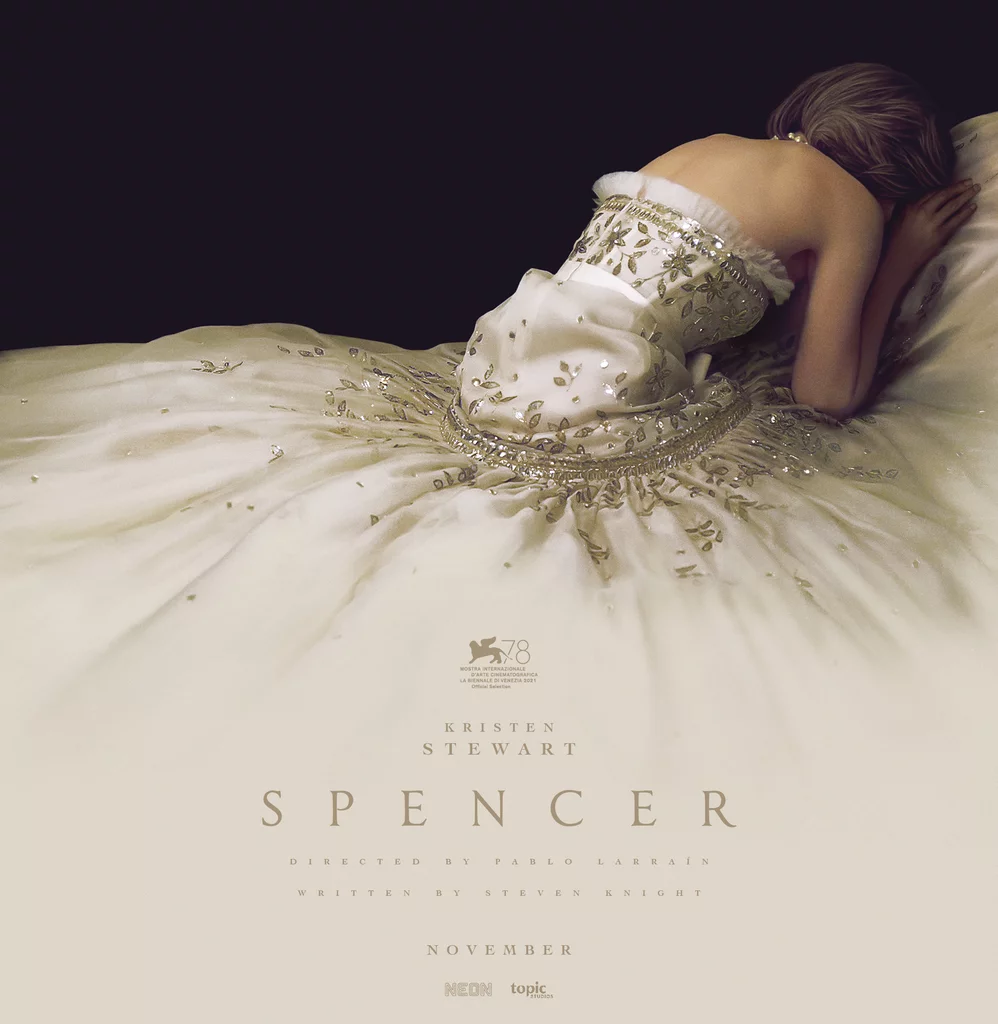
Right from the opening cue of “Arrival,” Jonny Greenwood informs you that his score for the Pablo Larraín helmed Spencer is not what you imagined. There’s an uneasiness to that opening cue, something that says: “this will most definitely be the most folk horror, non-horror film around.”
The marriage between a film’s visual aesthetic and tone and the score is on full display here. Beginning like something out of Goblin’s Suspiria score before venturing into a morose and melancholy-filled ambience of orchestra and sadness all within the same exact track speaks wonders about where we’re going, both cinematically and musically. Much like the film itself, somewhat of a hybrid between a fever dream (or nightmare) and reality, Greenwood’s score shifts from jazz to horror to chamber music. The moment “Spencer,” the film’s title cue, begins we’re brought into a piano cue that feels like Greenwood invoking Phillip Glass. It’s a heart wrenching/breaking listen as we witness a woman so distraught with a lonely, alienating existence and the overwhelming expectations that push her to the point of a breakdown.
Kristen Stewart embodies Princess Diana Spencer so brilliantly and the cinematography by DP Claire Mathon (who shot the equally wonderful Portrait of a Lady on Fire) provides a landscape that feels as if it could have been included in last year’s majestic All The Haunts Be Ours folk-horror boxset. No, Spencer isn’t your traditional horror film, but it is without a doubt a horror film. The dread builds and builds in cues like “Pearls,” which during the film gives its listener and viewers something comforting before Diana Spencer begins to quite literally eat the pearls in front of her. The gradual descent into madness is one of terror, an uneasy, off-kilter vibe that ebbs and flows like the most unpredictable of waves. “Delusion/Miracle,” begins with controlled chaos in the form of slowly building free jazz, before ratcheting back while adding strings that provide a welcomed escape from the breakdown we’re seeing play out on screen.
There’s something so very unique in the way Greenwood adds an almost schizophrenic musical vibe to the score, pairing absolutely perfectly with Larraín’s film. While Stewart’s best actress nomination for Spencer is well deserved (she’s absolutely wonderful in the film), a lot of what makes the film so effective is the combination of so many elements working together to tell a story about a woman who captured the world’s hearts, all while trying to hold herself together and finally, FINALLY being able to take back who she was: Diana Spencer. An unexpected treat, both score and film-wise, Spencer is not only one of the year’s best films, but hands down one of the best scores I’ve heard in quite some time.
Editor’s Note: Spencer also appeared in our list of the Best Film Scores of November 2021 and the Best Film Scores of 2021.
